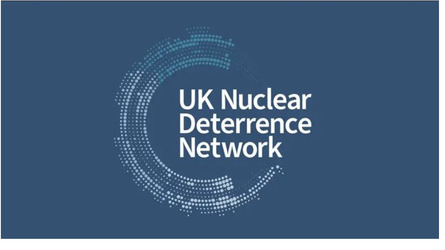Share

Uk Nuclear Deterrence Network Features Fellowship 2025
Description
Application Deadline
The deadline to apply for the Deterrence Futures Fellowship is Tuesday, 2 July 2025 at 23:59 BST. All applications must be submitted before this deadline to be considered. Late submissions will not be accepted under any circumstances, so applicants are strongly encouraged to prepare and submit all required materials well in advance. The fellowship begins in September 2025 and runs through April 2027.
About the Opportunity
The Deterrence Futures Fellowship is a unique, 18-month professional development programme designed to cultivate a new generation of experts in nuclear deterrence and related strategic fields. It is coordinated by the UK Nuclear Deterrence Network, a consortium that includes the Royal United Services Institute (RUSI), King’s College London, and the University of Leicester. The programme is funded by the UK Ministry of Defence through the Nuclear Deterrence and Arms Control Research Fund.
This fellowship offers selected participants the opportunity to explore, debate, and contribute to future deterrence policy through a structured series of engagements with leading experts, policymakers, and practitioners. It seeks to address the evolving landscape of strategic deterrence, especially in light of technological change, geopolitical competition, and shifting alliance dynamics. Fellows will gain deep insights into topics such as nuclear deterrence, integrated deterrence strategies, strategic communication, emerging threats, and UK and NATO security interests.
The programme is especially valuable for individuals working at the intersection of policy, academia, defence, and technology who are looking to expand their professional networks and deepen their subject-matter expertise in deterrence and strategic security.
Programme Details
The Deterrence Futures Fellowship runs from September 2025 to April 2027. It consists of a mix of in-person engagements, virtual sessions, and written policy work. The core components of the programme include:
- Five in-person meetings, which will be held across the United Kingdom and potentially other NATO countries in Europe.
- Two site visits to key institutions, facilities, or partner organisations involved in strategic deterrence.
- Regular online seminars featuring presentations, discussions, and workshops led by experts in nuclear policy, international security, military strategy, and defence technology.
- One-on-one mentoring sessions with senior scholars and practitioners.
- Scenario-based discussions and simulation exercises that challenge participants to apply strategic thinking and policy analysis skills.
- Publication of written work, including short policy briefs or opinion pieces developed by the fellows.
Fellows are expected to actively participate in all components of the programme, including both the in-person and online activities, and to contribute meaningfully to group discussions and collaborative work.
Benefits of the Fellowship
While the Deterrence Futures Fellowship is not a paid position, it offers numerous non-financial benefits that make it a highly valuable experience for early-career professionals:
- All travel, accommodation, and subsistence costs for in-person meetings and site visits are fully covered by the programme.
- Access to a wide network of policymakers, academics, and defence professionals within the UK and across NATO countries.
- Opportunity to publish policy-oriented work through RUSI and partner institutions, enhancing your professional profile.
- Mentorship and guidance from experts working in nuclear policy, strategic studies, and international security.
- Professional development support, including workshops and skill-building sessions tailored to early- and mid-career professionals.
- Collaborative environment where fellows can exchange ideas with peers from diverse disciplines and national contexts.
This fellowship provides a platform for visibility, thought leadership, and professional growth in one of the most consequential areas of contemporary security policy.
Eligibility Criteria
The programme is open to early- and mid-career professionals who meet the following eligibility requirements:
- Experience: Applicants should have between three and seven years of relevant professional experience. This could include work in academia, think tanks, government, the military, international organisations, civil society, or the private sector, particularly in areas related to defence, security, international relations, or technology.
- Nationality: Candidates must be nationals of NATO member states. Priority will be given to those based in the United Kingdom or other European NATO countries, although a limited number of places are available for applicants outside of Europe.
- Commitment: Applicants must be available to fully participate in all required meetings, site visits, and online sessions across the 18-month period.
- Mindset: The programme values diversity of thought and encourages applications from individuals who are open to respectful and inclusive dialogue. A demonstrated ability to work across disciplines and with peers from different backgrounds is essential.
The fellowship is especially suited to individuals who are committed to contributing to the future of strategic deterrence policy and who are eager to bridge the gap between research and policymaking.
Application
For more information visit : Uk Nuclear Deterrence Network Features Fellowship 2025
